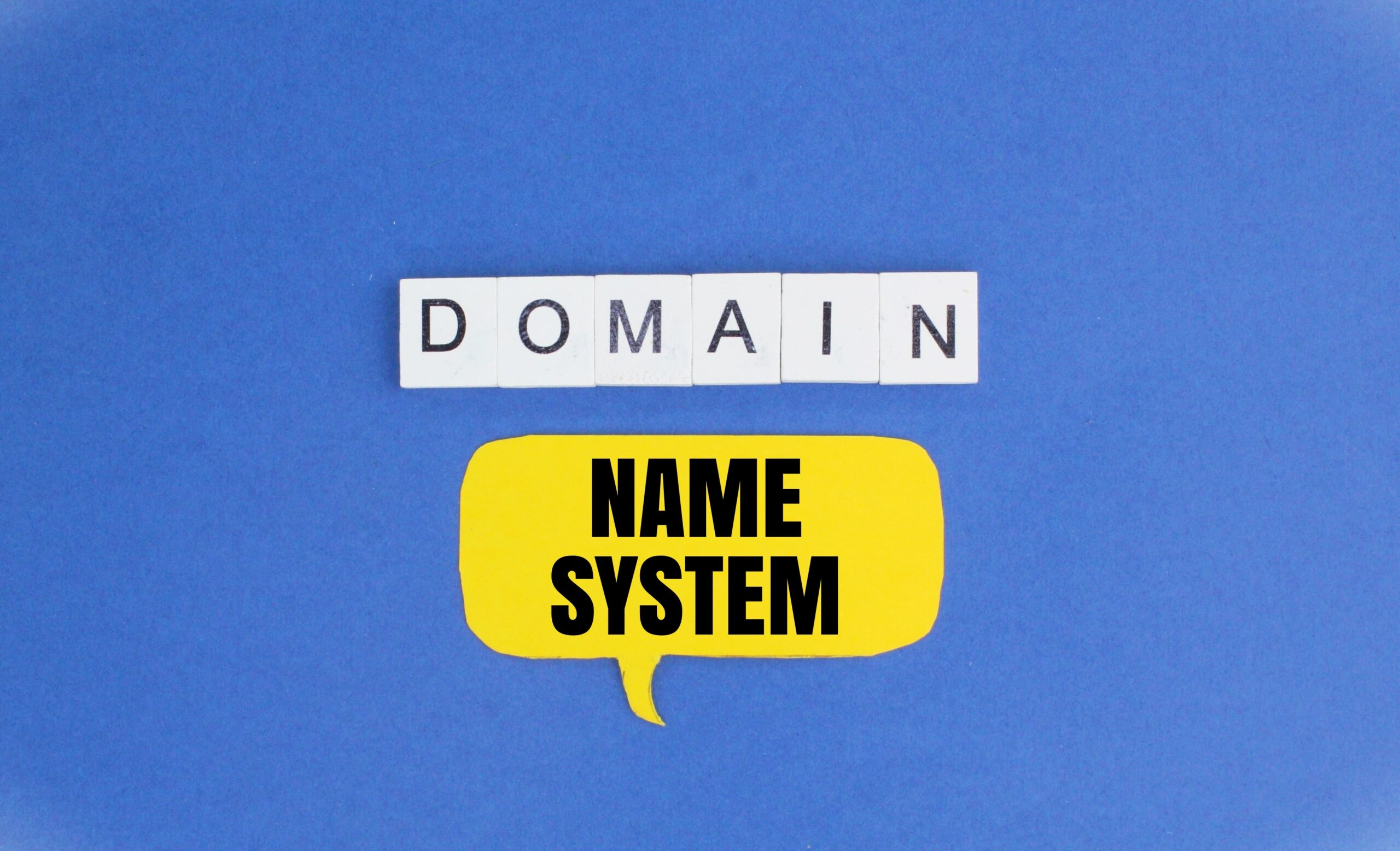February 16, 2025

Domain Authority represents the strength and credibility of your website in the eyes of search engines, particularly Google. This metric, originally developed by Moz, operates on a logarithmic scale from 1 to 100, with higher scores indicating a greater likelihood of ranking well in search engine results. Understanding Domain Authority is crucial because it serves as a predictive measure of how well your website might perform in search rankings compared to your competitors, though it’s important to note that it’s not a direct Google ranking factor but rather a helpful benchmark for your overall SEO efforts.
The significance of Domain Authority extends far beyond just a numerical score, as it encompasses various aspects of your website’s performance and reputation online. When your Domain Authority increases, it typically indicates improvements in multiple areas of your website’s health, including the quality of your backlink profile, content relevance, technical optimization, and overall user experience. This comprehensive metric helps businesses and website owners gauge their digital marketing efforts’ effectiveness and identify areas requiring improvement to enhance their online presence and visibility.
The Domain Authority scale’s logarithmic nature means that increasing your score becomes progressively more challenging as your number goes up. For instance, moving from a Domain Authority of 20 to 30 requires significantly less effort than advancing from 70 to 80. This scaling system reflects the real-world difficulty of competing with highly authoritative websites like major news outlets, educational institutions, and government organizations that typically occupy the upper end of the scale.
Most new websites begin with a Domain Authority of 1, and through consistent effort and strategic optimization, they can build their way up the scale. The average Domain Authority score varies significantly by industry and website type, but most established small to medium-sized businesses typically fall within the 20-50 range. Understanding where your website stands within this spectrum helps set realistic goals and expectations for your SEO strategy, allowing you to focus on achievable improvements rather than chasing unrealistic immediate jumps in authority.
The calculation of Domain Authority involves analyzing over 40 different factors that contribute to your website’s overall strength and credibility. These factors include the quality and quantity of backlinks pointing to your site, the age of your domain, your site’s technical health, and the overall authority of the websites linking to yours. Moz’s algorithm processes this data using machine learning to predict how well a website might rank in search engine results pages, creating a comparative metric that helps website owners understand their competitive position in the digital landscape.
The complexity of Domain Authority calculation reflects the sophisticated nature of modern search engine algorithms. Each factor carries different weight in the final score, with some elements having more significant impact than others. For example, earning a high-quality backlink from a website with high Domain Authority typically influences your score more positively than multiple links from low-authority sites. This weighting system encourages webmasters to focus on quality over quantity in their SEO efforts.
Link metrics play a fundamental role in determining your Domain Authority score, with particular emphasis on the number of total linking domains and the quality of those links. The diversity of your link profile matters significantly, as links from various high-authority domains across different industries and geographic locations tend to boost your score more effectively than multiple links from the same few sources. Additionally, the relevance of linking domains to your website’s content and industry contributes to the overall impact of these backlinks on your Domain Authority.
The technical aspects of your website, including site structure, loading speed, mobile responsiveness, and security protocols, also factor into your Domain Authority calculation. These elements demonstrate your website’s reliability and user-friendliness to search engines. A well-organized site architecture that allows search engines to crawl and index your content efficiently, combined with fast loading times and secure HTTPS implementation, creates a strong foundation for building Domain Authority. Regular monitoring and optimization of these technical factors ensure your website maintains its potential for authority growth.
Building a strong backlink profile remains one of the most effective ways to increase your Domain Authority, but the emphasis must be on quality rather than quantity. High-quality backlinks act as votes of confidence from other websites, signaling to search engines that your content is valuable and trustworthy. When reputable websites link to your content, they effectively transfer some of their authority to your domain, creating a network of trust that search engines recognize and reward. This transfer of authority operates similarly to academic citations, where respected papers citing your work enhance your credibility in the field.
The process of earning high-quality backlinks requires a strategic approach that combines creating link-worthy content with effective outreach and relationship building. Simply purchasing links or participating in link exchanges can actually harm your Domain Authority, as search engines have become increasingly sophisticated at detecting and penalizing manipulative link-building practices. Instead, focus on creating valuable, original content that naturally attracts links from relevant websites in your industry, and develop genuine relationships with other website owners and content creators who might reference your work.
The most valuable backlink opportunities often come from websites that are both authoritative and relevant to your industry. Educational institutions (.edu domains), government websites (.gov domains), and well-established industry publications typically provide the strongest backlink value. When seeking these opportunities, analyze your competitors’ backlink profiles to identify potential linking domains, but focus on creating unique value propositions that make your content more link-worthy than what already exists. This might involve conducting original research, creating comprehensive guides, or offering unique insights that others in your industry haven’t covered.
Building relationships with potential linking partners requires a personalized approach and genuine engagement with their content before making any outreach attempts. Start by following and interacting with their social media presence, commenting thoughtfully on their blog posts, and sharing their content with your audience. When you do reach out, focus on how your content can provide value to their audience rather than immediately requesting a backlink. This relationship-first approach leads to more sustainable link-building success and often results in ongoing partnership opportunities that can continue to benefit your Domain Authority over time.
On-page SEO optimization forms the foundation of a strong Domain Authority by ensuring your content is both user-friendly and search engine accessible. Every page on your website should be strategically optimized with relevant keywords, meta descriptions, and header tags that accurately describe the content while maintaining natural readability. The key is to strike a balance between optimization for search engines and creating engaging, valuable content for your human readers. This dual-focused approach helps search engines understand and properly index your content while keeping visitors engaged and likely to share or link to your pages.
Creating a cohesive internal linking structure is equally important for distributing authority throughout your website and helping search engines understand the relationship between different pages. Your internal linking strategy should guide visitors through related content while passing link equity to important pages on your site. This creates a strong site architecture that not only improves user experience but also helps search engines better understand your content hierarchy and topical expertise.


Effective content optimization begins with comprehensive keyword research and strategic placement of target terms throughout your content. However, modern SEO requires going beyond simple keyword placement to focus on creating content that thoroughly answers user questions and provides complete information on your chosen topics. This means developing content clusters around main themes, with detailed supporting articles that demonstrate your expertise and authority in specific areas. Each piece of content should be well-researched, properly cited, and provide unique value that sets it apart from similar content on other websites.
The technical aspects of on-page optimization include proper use of header tags (H1-H6), optimized image alt text, descriptive URLs, and schema markup where appropriate. These elements help search engines better understand your content’s structure and context, while also improving accessibility for all users. Additionally, ensuring your content is well-formatted with appropriate paragraph lengths, subheadings, and visual elements improves readability and engagement, which can lead to longer time on page and lower bounce rates – factors that indirectly contribute to your site’s authority.
Technical SEO serves as the backbone of your website’s authority by ensuring optimal performance, accessibility, and crawlability for search engines. A technically sound website provides a strong foundation for all other SEO efforts, including content marketing and link building. When search engines can efficiently crawl and index your site, they’re better able to understand your content’s value and authority in your field. This comprehensive approach to technical optimization includes everything from site speed optimization to mobile responsiveness, secure protocols, and proper XML sitemap implementation.
Implementing technical SEO improvements requires a systematic approach that addresses both surface-level optimizations and deeper structural elements of your website. This includes regular site audits to identify and fix technical issues, monitoring server response times, optimizing database performance, and ensuring proper implementation of robots.txt directives. Each technical improvement contributes to a better user experience and stronger search engine signals, which in turn supports your Domain Authority growth. Regular maintenance and updates of these technical elements ensure your website maintains its competitive edge in search rankings.
Site speed optimization has become increasingly crucial for Domain Authority, as search engines prioritize websites that provide fast, seamless experiences across all devices. This involves implementing advanced caching solutions, optimizing image delivery through modern formats like WebP, minifying CSS and JavaScript files, and leveraging content delivery networks (CDNs) to reduce server response times. Each millisecond improvement in loading speed can contribute to better user engagement metrics and, consequently, stronger domain authority signals.
Mobile optimization extends beyond responsive design to include specific technical considerations for mobile users. This includes implementing proper viewport settings, ensuring touch elements are appropriately sized and spaced, optimizing font sizes for mobile readability, and eliminating mobile usability issues like horizontal scrolling. Progressive Web App (PWA) features can further enhance mobile user experience by providing app-like functionality within the browser, potentially improving engagement metrics and contributing to stronger domain authority.
Content marketing plays a pivotal role in establishing and increasing Domain Authority by demonstrating expertise, attracting natural backlinks, and engaging your target audience. A successful content marketing strategy focuses on creating comprehensive, authoritative content that addresses specific user needs and questions within your industry. This approach not only attracts organic traffic but also encourages other websites to reference your content as a valuable resource, naturally building your backlink profile and, consequently, your Domain Authority.
Developing a content strategy that supports Domain Authority growth requires a deep understanding of your audience’s needs and search behavior. This involves conducting thorough keyword research, analyzing competitor content gaps, and creating content that exceeds current search result quality. Your content should establish your website as a go-to resource in your industry, combining factual accuracy with engaging presentation styles that keep readers coming back for more information.
Creating content that naturally attracts backlinks requires a focus on producing unique, valuable resources that fill gaps in your industry’s current content landscape. This might include original research studies, comprehensive guides, expert interviews, or innovative solutions to common industry problems. The key is to create content that other websites and industry professionals will want to reference and share with their audiences, building your authority through natural link acquisition rather than artificial link building tactics.
The presentation and promotion of your content are equally important as its quality. Content should be well-organized, visually appealing, and easy to reference. Including original data visualizations, infographics, or custom images can make your content more shareable and link-worthy. Additionally, implementing a strategic content promotion plan through social media, email marketing, and industry outreach can help your content reach potential linking partners and increase its chances of earning valuable backlinks.
Nexvato specializes in comprehensive Domain Authority enhancement through their advanced SEO and digital marketing services. Their team of experts employs data-driven strategies that address all aspects of Domain Authority growth, from technical SEO optimization to content creation and link building. By partnering with Nexvato, businesses can leverage years of industry expertise and proven methodologies to accelerate their Domain Authority growth while maintaining sustainable, white-hat SEO practices that align with search engine guidelines.
Working with Nexvato provides access to proprietary tools and methodologies that streamline the process of improving your website’s authority. Their comprehensive approach includes regular site audits, competitor analysis, content strategy development, and backlink profile optimization. This systematic methodology ensures that all aspects of your website’s authority are addressed in a coordinated manner, maximizing the impact of each improvement and accelerating your Domain Authority growth.
Domain Authority remains a crucial metric for understanding and improving your website’s potential to rank well in search results. By implementing the strategies outlined in this guide, from technical SEO improvements to content marketing and link building, you can systematically increase your website’s authority and improve its visibility in search results. Remember that building Domain Authority is a gradual process that requires consistent effort and attention to multiple aspects of your online presence.
The most effective approach to improving Domain Authority combines technical excellence, high-quality content creation, and strategic link building. While you can implement many of these strategies independently, partnering with an experienced team like Nexvato can accelerate your progress and ensure all aspects of your SEO strategy work together cohesively. Their comprehensive approach and proven track record in improving Domain Authority make them an ideal partner for businesses serious about improving their online presence.
Take the first step toward improving your website’s Domain Authority today by scheduling a consultation with Nexvato’s team of SEO experts. Their personalized approach will help identify the most impactful opportunities for improving your website’s authority and develop a customized strategy to achieve your goals. Contact Nexvato today to learn how their expertise can help accelerate your website’s Domain Authority growth and improve your search engine rankings.
Ready to boost your online presence and drive real results? Let’s talk about how we can help you reach new heights—schedule a free consultation today!

Nexvato specializes in elevating businesses online with a comprehensive suite of services including cutting-edge web design, dynamic digital marketing, strategic SEO, and effective retargeting. Our integrated approach ensures seamless digital experiences, driving sales and enhancing online visibility.